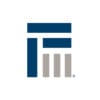Dear Client:
We wrote to you in early October of 2008 to outline actions taken by FineMark National Bank & Trust to protect our clients’ assets. A second letter followed in December of last year discussing FineMark’s regulatory, compliance and audit programs. While the financial crisis may have abated to a degree, reports continue to circulate of the potential for a number of bank failures in the future. As a result, we believe that this is an appropriate time to reassure you of FineMark’s stability and to provide information regarding our strong financial soundness and corporate governance.
FINANCIAL SOUNDNESS
Capital and asset quality are two important factors in measuring the strength and stability of a bank. An important measure of a bank’s capital is its Tier I Leverage Ratio. The ratio is calculated using the bank’s capital as the numerator and the average total assets as the denominator. Federal regulations require that banks maintain a Tier I Leverage Ratio of at least 5%. FineMark is very well capitalized with a Tier I Leverage Ratio of 14.24% (Capital Assets / Total Assets = $25,866,000 / $184,002,000) as of August 31, 2009.
FineMark’s loans and its investment portfolio are the primary assets that drive earnings. Banks and other financial service providers experience difficulties when their loan portfolios contain an inordinate percentage of troubled loans, otherwise known as nonperforming assets. We are pleased to inform you that FineMark maintains a very high quality loan portfolio. We have modified one residential home loan to avoid foreclosure. The outstanding loan balance is $158,000 and the borrower continues to make payments according to the modified terms. Nevertheless, accounting rules require this loan to be classified as a nonperforming asset.
FineMark’s own investment portfolio is comprised of high quality Federal Government Agency and municipal bonds. On average the portfolio is rated AA. At $52 million, FineMark’s investment portfolio represents about one-third of its earning assets. This asset allocation translates into a strong balance sheet and evidences our commitment to the safe and sound management of bank resources.
CORPORATE GOVERNANCE
Strong corporate governance is vital to FineMark’s success. Our Board of Directors oversees all aspects of FineMark’s operations and leads our system of corporate governance. The Board is comprised of independent directors who adhere to the highest level of integrity and personal and professional ethics and have extensive leadership and management experience.
Our Board has implemented policies, procedures and a code of business ethics designed to promote ethical and responsible decision making. This is consistent with our founding principle to “always do what is right for our clients.” Every FineMark employee understands the value of holding each other accountable to maintain the highest standards of behavior and performance.
The Board of Directors’ Audit Committee has engaged internal auditors, Jon Campbell & Associates, Inc., and external auditors, Hacker Johnson & Smith PA. Both firms are independent of FineMark and specialize in bank compliance and reporting. The firms focus on operational, credit and compliance risk to ensure that all internal policies are being adhered to consistently. Hacker, Johnson & Smith PA verifies that our financial statements are presented in accordance with Generally Accepted Accounting Principles. Our auditors report directly to the Audit Committee which is composed entirely of independent outside directors.
The Board utilizes other committee structures to conduct its business including:
- Asset/Liability Committee: The Asset/Liability Committee is responsible for overseeing the Bank’s risk management activities including advising management on strategic and operational matters and developing, implementing and monitoring an asset/liability management process and related procedures.
- Compensation Committee: Like the Audit Committee, the Compensation Committee members are independent outside directors. The Compensation Committee is responsible for approving the compensation for executive officers, directors, and employees including setting performance goals and approving and implementing compensation plans and programs.
- Executive Committee: The purpose of the Executive Committee is to exercise, between regularly scheduled Board meetings, all powers of the Board regarding the management and direction of the Bank.
- Loan Committee: The Loan Committee is responsible for establishing sound loan policies and credit administration practices. Any loan request in excess of individual lending authorities must be presented to the Loan Committee for approval. All Loans are presented to the Loan Committee for review on a monthly basis.
- Trust/Investment Committee: The Trust Committee is responsible for establishing the trust department risk management system and adopting sound fiduciary services policies and procedures. Thank you for your confidence in FineMark National Bank & Trust. Again, we believe that it is important to communicate to you our commitment to safe and sound management practices and to always do what is right, both now and throughout our future.
Kind Regards,
Joseph R. Catti
President and Chief Executive Officer
Lee J. Seidler
Audit Committee Chairman






